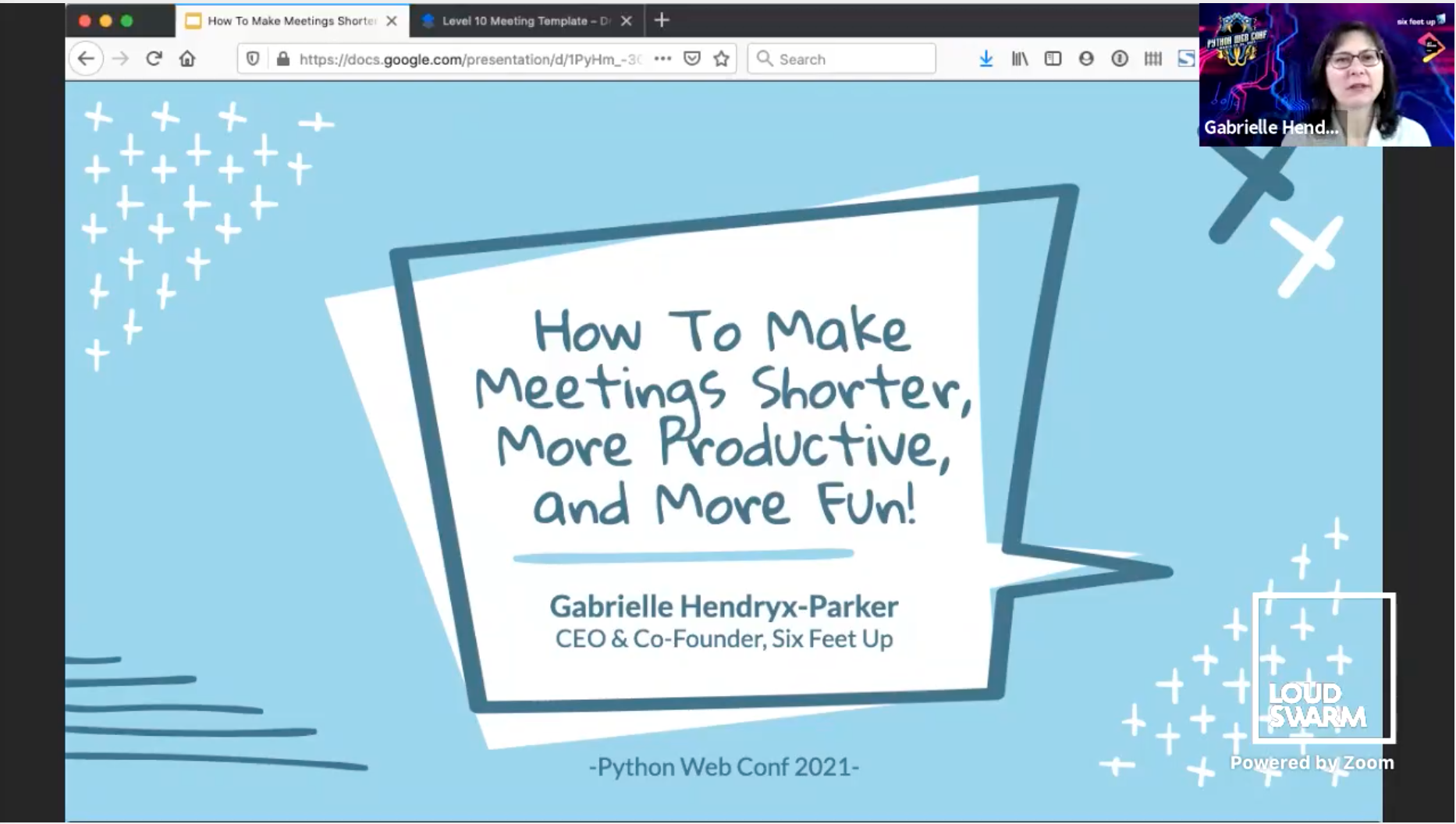

5 Tips for Successfully Onboarding Speakers
The hardest part about organizing an event — whether virtual, in person or hybrid — is getting the right people in the room. From hiring the best vendors to ensuring target attendees are present to securing high-quality speakers, event organizers have a lot on their shoulders when planning for a conference. This blog post hones in on how to onboard high-quality speakers for your event.
With the right tools, almost anyone can give a great talk. What tools should speakers expect from event organizers in advance? Don’t worry, we’ve got you covered.
Here are five tips event organizers should provide speakers with to ensure a successful event:
-
Share Calendar and Slack Invitations
In the world of virtual events, it’s common to have speakers and event organizers in multiple time-zones. To eliminate confusion, send each individual speaker a calendar invite during their time slot with the following information:- title of their talk,
- talk abstract,
- time of their talk (listed in both the invite time and in the meeting body text), and
- contact information for the event organization team.
This communication gives the speaker the opportunity to re-verify information about the talk and ensure that the speaker’s calendar is blocked during the presentation time.
In Slack, we recommend creating and communicating via a private “green-room” channel, open exclusively to speakers and organizers. The channel provides a safe space for speakers to ask each other questions, compare talk topics and hype each other up for the event. Invite speakers to the “green-room” channel as early as possible so that they have time to get situated and chat with fellow presenters.
-
Create Backups (Videos & Speakers)
LoudSwarm by Six Feet Up’s event producers have seen it firsthand: a speaker gets cold feet moments before going live! Don’t panic. Instead, plan ahead by:Recording each speaker’s talk in advance of the conference. Ask all speakers to pre-record their talks and share the .mp4 file at least two weeks before the event starts. This is a great “Plan B” for speakers who don’t have a quiet background environment, experience unstable internet connections, or are unable to present the talk live for other reasons (e.g., time zone difficulties and/or cold feet).
Creating a list of backup speakers who can fill any gaps in the schedule. Similar to an understudy, if a speaker is unable to present, you could ask someone else to present during the time slot. If the “backup speaker” isn’t needed during the live event, event organizers can share “bonus talks” with attendees at the end of the conference.
-
Send Regular Reminders
While a calendar invite is important, it’s usually not enough. Event organizers should send regular emails and/or Slack messages with presentation tips, Zoom links and time slot reminders. Frequent communication helps alleviate stress from both the speakers and the event organizers. -
Conduct A/V Checks and Prepare Moderators
It is critical to complete audio/visual (A/V) checks with your speakers. It’s nerve-wracking for all involved when a speaker is having issues with their Zoom settings or screen sharing. Event organizers should schedule A/V checks 14-21 days before the event, depending on the quantity of speakers you have lined-up. Additionally, it’s best practice to have event moderators do a final A/V check, ensuring the speakers look and sound their best, on the day of the event. In addition to conducting the final A/V check, event moderators serve as a valuable resource for speakers. Moderator duties can include: introducing the speaker, keeping the speaker on track by providing time warnings, fielding questions from attendees, live-assisting with any issues that might come up, and overall, ensuring the talk goes smoothly. -
Publicize FAQs
To limit the number of questions you receive and answer, add a Speaker FAQ (Frequently Asked Questions) page to your event website. Providing a written document of the common speaker questions will ensure your speakers that you’re prepared and ready to provide a great event experience. Here is an example of a Speaker FAQ from the Python Web Conference that was hosted virtually on LoudSwarm.
Could LoudSwarm by Six Feet Up be a good fit for your upcoming virtual events? Our event producers will be on hand to provide support and share best practices to ensure your event goes off without a hitch. Simply drop us a note and/or schedule a demo of LoudSwarm’s features and white-glove service.
Get in touch
We are excited to help jumpstart your next event: let's make it amazing.